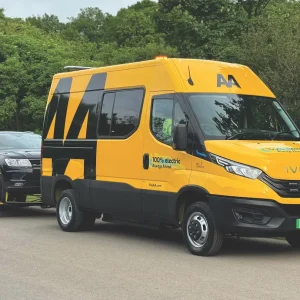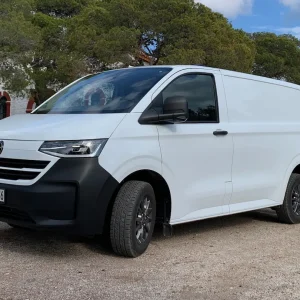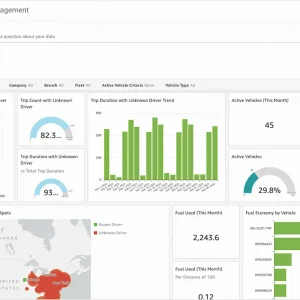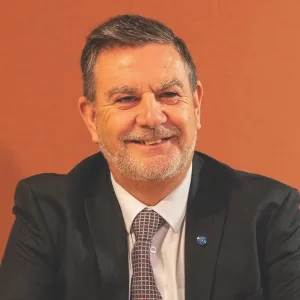This year, What Van? is proud to welcome Bob Sockl into its Hall of Fame. As head of
the team that organises the commercial Vehicle Show, Sockl played a vital role in saving the exhibition from extinction in the dark days of the recession, which forced the organising partners to cancel the show in 2009 following a pre-recession 2008 event that drew a record 28,000 visitors. not only that but he has since established it as the key event in the motor transport industry’s calendar.
He stepped down after the successful 2014 show, which attracted 18,884 visitors to see 435 exhibitors. This is how he describes the moment: “4pm on the 2nd of May 2014 was the end of my reign. We’d cleaned and emptied the halls and handed them back to the NEC.”
It was back in june 1992 that Sockl’s association with what became the CV Show began when the SMMT approached him about marketing the Commercial Vehicle Bodyworks Show, which then took place in Stoneleigh, Warwickshire, before transferring to the NEC in Birmingham in 1995 and taking on the name of the Commercial Vehicle Show two years later. at this time threeshows served the market, with the CV Show vying for business with the IRTE (Institute of Road Transport Engineers) event in Telford and the Road Haulage Association’s Tipcon Show for six- to eight-wheel tippers in Harrogate.
As Sockl explains, this was not sustainable, with few manufacturers or suppliers able to attend all three. Consequently, the events merged into the jointly-owned Commercial Vehicle Show in 2008. After the cancellation of the 2009 show, Paul Everitt, then SMMT boss, enlisted Sockl to resurrect the event as chief organiser alongside handling the sales and marketing side, and in this capacity he was instrumental in ensuring the exhibition did not go to the wall.
The exhibition returned to full size in 2011 and has gone from strength to strength ever since, with Sockl claiming 90% of exhibition space for 2015 was sold by November, compared with 60% at the same time last year.
It is a fixture in the calendar of most of the major manufacturers, but there are always exceptions
– Volkswagen, for example, has not taken a stand since 2011 when it unveiled its latest Crafter and hosted an extremely loud darts tournament for visitors, prompting the organisers to politely request the manufacturer to turn down the volume.
On an earlier, and more alarming, occasion, he had to unceremoniously cut short the performance of a rock band Ford had set up on its stand.
“I had to pull the plug out of the wall,” he recalls.
In recent years, the CV Show has played host to some major LCV launches, including Ford’s family of Transits and, last year, the UK-built Vauxhall Vivaro, but Sockl argues that the NEC event’s diversity means it is not dependent upon product reveals, so long as most of the big brands attend.
“It’s an everything show,” he says, “with trucks, vans and all the maintenance components. and in 2015 there’s nowhere else you’ll find that.”
Sockl’s affection for the CV Show is illustrated by his description of the halls on the eve of the exhibition.
“At 4pm on a Monday night it changes from a big warehouse into a fantastic spectacle with carpets, bright lights and everything the industry needs.”
Having handed over to a team led by former show finance chief Rob Skelton, the man who has become synonymous with the exhibition will not be there in 2015 because he is planning a trip to Australia.
We wish him bon voyage but we know a part of him will be pining for three halls thronging with visitors in an exhibition centre in Birmingham.
Back to life
When attempting to revive the CV show, Bob Sockl realised it was crucial to retain a presence in the market.
“We had to come up with a gameplan that made financial sense,” he explains. “The big manufacturers weren’t going to come but we needed a presence to serve and preserve the visitors.”
The result was the CV Operators Show with stands taken by businesses supplying the aftermarket. “It was about managing the fleet you already owned as opposed to sourcing the fleet you might want to buy,” he says.
“It said: ‘We’re still here’.
Sockl stresses the show was in real danger of going the way of the biennial RAI CV Show in Amsterdam that, following an abortive comeback in 2012, was withdrawn this year.
Sockl ranks his greatest achievement as belonging to a team that “rescued it (the show) from a fate worse than death”.





